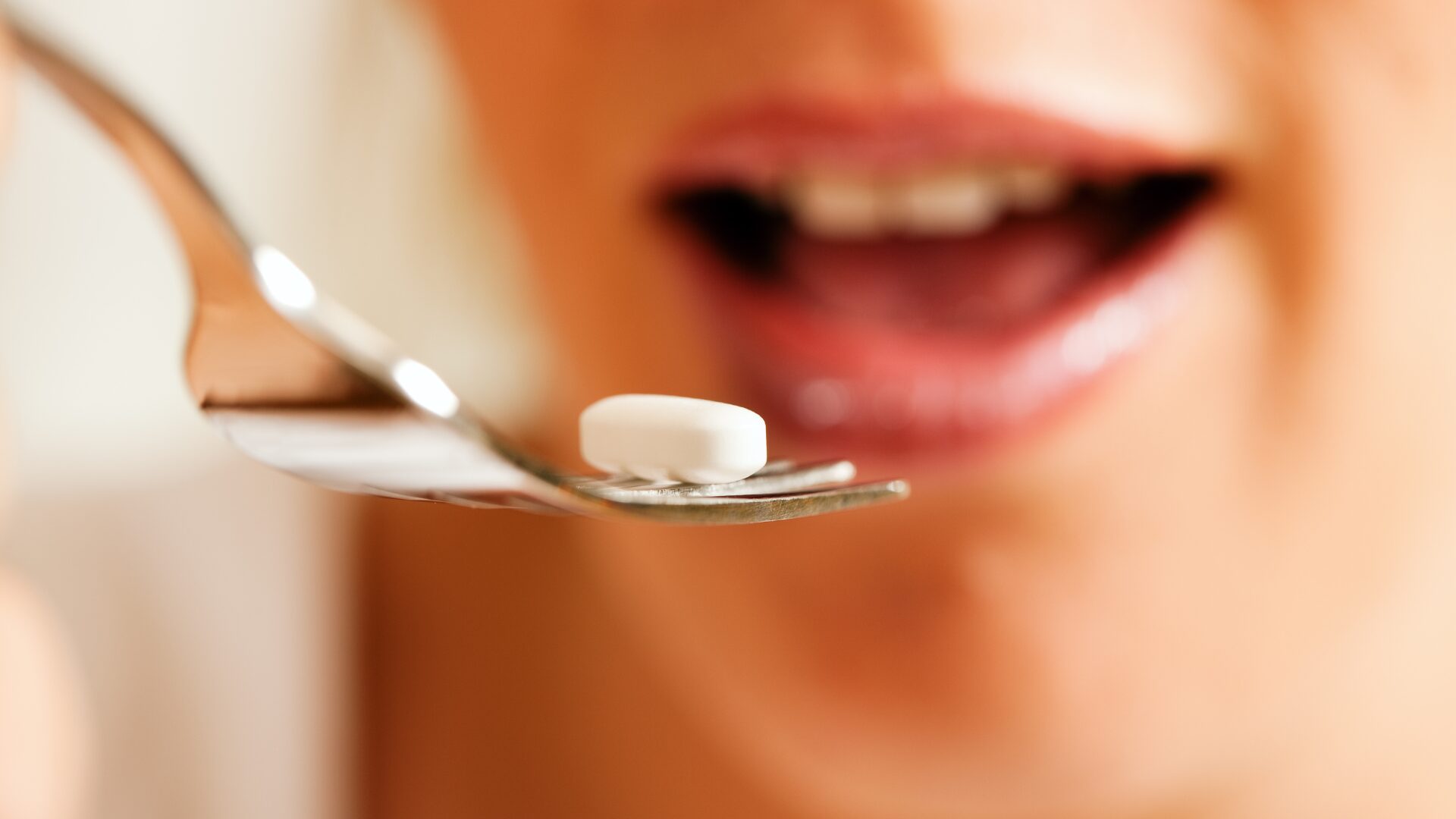The Impact of Alcohol on Gut Health

In this article, you will explore the fascinating connection between alcohol consumption and gut health. We will dive into the various ways in which alcohol can affect your digestive system, shedding light on how it impacts the delicate balance of bacteria in your gut. From the immediate effects to the long-term consequences, get ready to uncover the surprising ways that alcohol can leave a lasting impact on your gut health.
So grab your favorite beverage (preferably non-alcoholic!) and join us on this enlightening journey to better understand the relationship between alcohol and your digestive system.
Effects of Alcohol on the Gut Microbiome
Alcohol's Impact on Gut Bacteria
When consumed, alcohol can have a significant impact on the composition and diversity of the gut microbiota. The gut microbiome refers to the trillions of microorganisms residing in our digestive system, which play a crucial role in maintaining our overall health. Studies have shown that alcohol consumption can alter the balance of beneficial bacteria in the gut, leading to a decrease in microbial diversity.
Changes in gut microbiota composition
Regular alcohol intake has been found to promote the growth of harmful bacteria in the gut, while simultaneously reducing the levels of beneficial bacteria. This disruption to the delicate balance of gut flora can have far-reaching effects on our health. It can impair the gut’s ability to digest and absorb nutrients, weaken the immune system, and contribute to the development of gut-related diseases.
Alcohol-induced microbial imbalance
The alterations in gut microbiota caused by alcohol consumption can lead to a condition known as dysbiosis, which refers to an imbalance between beneficial and harmful bacteria in the gut. Dysbiosis has been associated with various health issues, including chronic inflammation, obesity, autoimmune diseases, and even mental health disorders. Therefore, maintaining a healthy balance of gut bacteria is essential for overall well-being.
Link between gut health and overall well-being
The gut microbiome plays a vital role in maintaining our overall health and well-being. It is not only involved in digestion and nutrient absorption but also influences our immune system, mental health, and metabolism. The health of our gut directly impacts the health of our entire body. Therefore, any disruption to the gut microbiome, such as that caused by alcohol consumption, can have significant consequences for our overall health.
Increased Intestinal Permeability
Alcohol's effect on the intestinal barrier
Alcohol consumption can weaken the integrity of the intestinal barrier, which is responsible for selectively allowing the passage of nutrients while preventing the entry of harmful substances into the bloodstream. Alcohol has been shown to disrupt the tight junctions between intestinal cells, leading to increased intestinal permeability.
Impaired barrier function and leaky gut syndrome
When the intestinal barrier becomes compromised, it can result in a condition called leaky gut syndrome. In this condition, harmful substances like toxins, bacteria, and undigested food particles can pass through the intestinal wall and enter the bloodstream. This can trigger an immune response, leading to inflammation and potentially causing a variety of health issues.
Potential consequences of increased permeability
Increased intestinal permeability can have several negative consequences. It can contribute to chronic inflammation, as harmful substances that enter the bloodstream trigger an immune response. Additionally, it can lead to nutrient malabsorption, as the compromised intestinal barrier may struggle to effectively absorb essential nutrients. Furthermore, increased permeability has been linked to autoimmune diseases, allergies, and even neurological disorders.
Inflammation in the Gut
Alcohol's role in gut inflammation
Alcohol consumption has been shown to induce inflammation in the gut. The presence of alcohol triggers an immune response in the gastrointestinal tract, leading to the release of pro-inflammatory cytokines and other immune factors. This chronic inflammation can, in turn, contribute to the development of various gut-related diseases.
Effects of chronic alcohol consumption
Long-term alcohol consumption can exacerbate gut inflammation, leading to a range of gastrointestinal issues. Chronic inflammation can damage the intestinal lining, impair the functioning of the gut microbiota, and weaken the immune system. The accumulation of alcohol-induced inflammation over time can increase the risk of developing conditions like inflammatory bowel disease (IBD).
Inflammatory bowel disease (IBD) and alcohol
Inflammatory bowel disease refers to a group of chronic inflammatory conditions that affect the digestive tract, including Crohn’s disease and ulcerative colitis. While the exact causes of IBD are not fully understood, alcohol consumption has been identified as a potential risk factor. For individuals with IBD, alcohol can aggravate symptoms and trigger flare-ups due to its inflammatory properties.
Alcohol and Nutrient Absorption

Impairment of nutrient absorption
Alcohol consumption can significantly impair the body’s ability to absorb essential nutrients from food. Several mechanisms contribute to this impairment. Firstly, alcohol can damage the cells lining the small intestine, reducing their ability to transport nutrients into the bloodstream. Additionally, alcohol interferes with the metabolism and absorption of specific vitamins and minerals.
Vitamin and mineral deficiencies
Chronic alcohol consumption often leads to deficiencies in vital nutrients, including vitamins A, B complex, C, D, E, and K, as well as minerals like magnesium, calcium, and zinc. These deficiencies can have profound effects on overall health, as vitamins and minerals play key roles in numerous bodily functions. For example, vitamin deficiencies can weaken the immune system, impair wound healing, and affect cognitive function.
Consequences of inadequate nutrient intake
Inadequate nutrient intake due to alcohol-induced malabsorption can have significant consequences for overall health. Vitamin and mineral deficiencies can result in a weakened immune system, poor bone health, increased susceptibility to infections, and impaired cognitive function. Furthermore, inadequate nutrient intake can hinder the body’s ability to repair and regenerate tissues, leading to prolonged healing time for wounds and an overall decline in health.
Alcohol and Gut Lining Damage
Direct damage to the gastrointestinal tract
Alcohol, especially when consumed in excessive amounts or over a prolonged period, can directly damage the lining of the gastrointestinal tract. The toxins in alcohol can irritate and inflame the delicate tissues of the stomach and intestines, leading to various digestive issues.
Gastric and intestinal ulcers
Alcohol abuse has been linked to the development of gastric ulcers, which occur in the stomach, and intestinal ulcers, which occur in the small intestines. These ulcers can cause symptoms such as abdominal pain, bloating, nausea, and gastrointestinal bleeding. The presence of ulcers can also further contribute to the disruption of gut microbiota and exacerbate inflammation in the gut.
Increased risk of gastrointestinal diseases
Excessive alcohol consumption has been associated with an increased risk of developing gastrointestinal diseases, including gastritis, pancreatitis, and liver diseases. These conditions can have a severe impact on gut health, leading to chronic inflammation, impaired digestion and nutrient absorption, and an increased susceptibility to infections and other complications.
Alcohol and Gut Motility
Impact on normal gut movement
Alcohol consumption can disrupt the normal movement of the gastrointestinal tract, known as gut motility. This disruption can lead to changes in bowel habits, such as diarrhea or constipation. Alcohol affects the muscle contractions and coordination in the gut, which are essential for moving food through the digestive system.
Changes in bowel habits
Excessive alcohol consumption can contribute to irregular bowel movements. It can either speed up the passage of food through the intestines, resulting in loose stools or diarrhea, or slow down motility, leading to constipation. These changes in bowel habits can cause discomfort and negatively impact the overall digestive process.
Gastrointestinal disorders associated with alcohol
Alcohol abuse has been linked to several gastrointestinal disorders, including irritable bowel syndrome (IBS) and alcoholic gastritis. IBS is a chronic condition characterized by abdominal pain, bloating, and changes in bowel habits. Alcohol can trigger or exacerbate these symptoms in individuals with IBS. Alcoholic gastritis refers to inflammation of the stomach lining, which can cause symptoms like nausea, vomiting, and stomach pain.
Alcoholic Liver Disease and Gut Health
Alcohol's effect on the liver
Alcohol is well-known for its detrimental effects on the liver. Excessive alcohol consumption can lead to alcoholic liver disease (ALD), which includes fatty liver, alcoholic hepatitis, and cirrhosis. The liver plays a crucial role in maintaining gut health, and when it becomes compromised by alcohol, it can have far-reaching consequences for the entire digestive system.
Liver-gut axis interaction
The liver and the gut maintain a close relationship known as the liver-gut axis. The gut microbiota and metabolites produced in the gut have a direct impact on liver function, while the liver produces bile and filters blood, influencing the gut environment. Alcohol-induced damage to the liver disrupts this axis, leading to imbalances in gut microbiota, inflammation, and impaired gut health.
Contribution to gut health complications
The liver is responsible for detoxifying alcohol in the body. However, chronic and excessive alcohol consumption overwhelms the liver’s capacity to process alcohol, leading to liver damage. As the liver becomes compromised, it can no longer effectively support gut health. The impaired liver function contributes to gut dysbiosis, increased intestinal permeability, inflammation, and a higher risk of gastrointestinal diseases.
Alcohol and Intestinal Dysbiosis

Disruption of beneficial gut bacteria
Alcohol consumption disrupts the delicate balance of gut microbiota, leading to the overgrowth of harmful bacteria and a decline in beneficial bacteria. The altered gut flora can result in dysbiosis, which negatively affects the gut’s ability to perform essential functions, such as digestion, absorption, and immune regulation.
Overgrowth of harmful bacteria
Harmful bacteria, such as Escherichia coli and Enterococcus faecalis, can flourish in the presence of alcohol. These bacteria can produce toxins that damage the intestinal lining, promote inflammation, and contribute to various gut health issues. The overgrowth of harmful bacteria displaces beneficial bacteria, further exacerbating the disruption to the gut microbiome.
Implications for digestive health
Intestinal dysbiosis caused by alcohol consumption has significant implications for digestive health. The imbalanced gut flora can lead to digestive problems like bloating, gas, diarrhea, and constipation. Additionally, the disruption to gut microbiota can impair digestion and nutrient absorption, leading to nutrient deficiencies and related health issues.
Alcohol and Gut-Brain Axis
Bidirectional communication between gut and brain
The gut and brain communicate through a bidirectional pathway known as the gut-brain axis. The gut microbiota produce metabolites and neurotransmitters that can influence brain function, while the brain can also send signals that impact gut activity. This intricate communication system can be disrupted by alcohol consumption.
Effects of alcohol on gut-brain signaling
Alcohol consumption can disrupt the delicate balance of gut-brain signaling. Alcohol’s impact on the gut microbiota alters the production and release of neurotransmitters and metabolites that influence brain function. This disruption can contribute to mood changes, cognitive impairments, and even mental health disorders like anxiety and depression.
Mood and mental health impact
The gut-brain axis plays a crucial role in regulating mood and mental health. The alterations in gut microbiota caused by alcohol consumption can have a direct impact on neurotransmitter production and release. This can lead to imbalances in brain chemistry and contribute to the development or exacerbation of mood disorders and other mental health conditions.
Improving Gut Health after Alcohol Consumption
Reducing alcohol intake or abstaining
One of the most effective ways to improve gut health after alcohol consumption is to reduce alcohol intake or abstain from drinking altogether. By limiting alcohol consumption, the gut microbiota can gradually restore their balance, promoting a healthier and more diverse microbial community.
Replenishing gut flora with probiotics
Probiotics are living microorganisms that can help restore and maintain a healthy gut microbiome. Consumption of probiotic-rich foods or supplements can introduce beneficial bacteria to the gut and support a more balanced microbial community. Probiotics can aid in the recovery of gut health after alcohol-induced dysbiosis.
Aiding gut healing with dietary changes
Adopting a healthy and balanced diet can support gut healing after alcohol consumption. Including foods that promote gut health, such as fruits, vegetables, whole grains, and fermented foods, can provide essential nutrients and promote the growth of beneficial gut bacteria. Avoiding processed and high-sugar foods, as well as alcohol itself, can further aid in gut healing.
Seeking professional help when needed
If gut health issues persist or worsen after alcohol consumption, it is crucial to seek professional help. Healthcare providers, including gastroenterologists and dietitians, can provide guidance and treatment options tailored to individual needs. They can assess gut health, identify any underlying conditions, and recommend appropriate interventions to restore and maintain gut health.
Share:
Related Posts

Post-Workout Beauty Routine: Hair & Skincare Hacks
Sweat smarter! Discover the best post-workout hair and skincare hacks for women to keep your skin glowing and hair fresh after exercise.

No-Bake Caramel Brownie Bars
Indulge in these rich, no-bake caramel brownie bars! Packed with chocolatey goodness and a gooey caramel layer, they make the perfect guilt-free dessert.

Boosting Immunity: Essential Vitamins & Natural Remedies
Discover how to strengthen your immune system with essential vitamins and natural remedies. Learn how women can boost their immunity naturally for better health and well-being.

Crispy Roasted Chickpeas
Craving a healthy, crunchy snack? Try these crispy roasted chickpeas! Packed with protein and fiber, they make the perfect guilt-free munchies.






